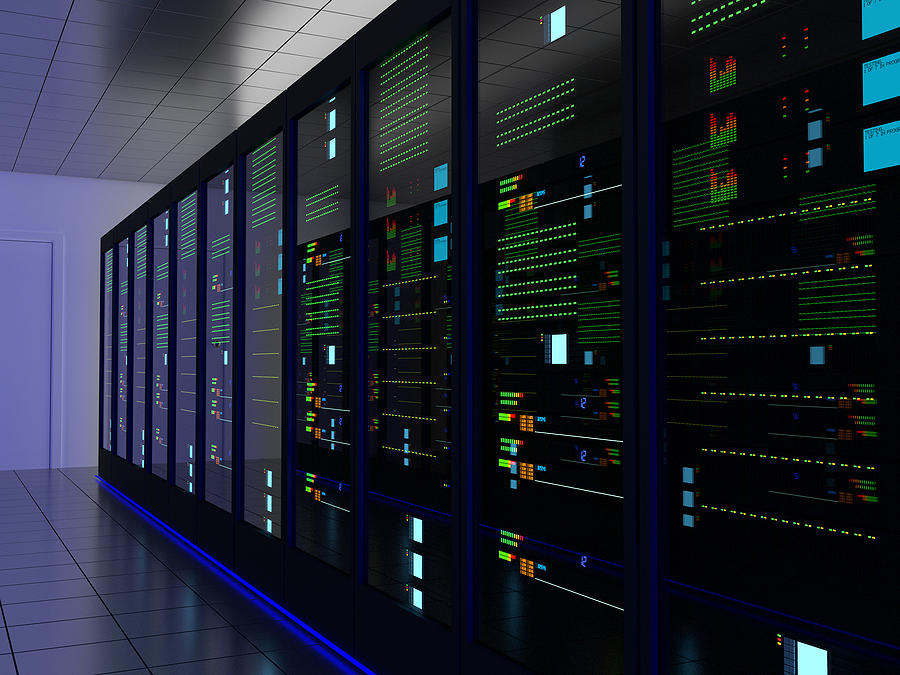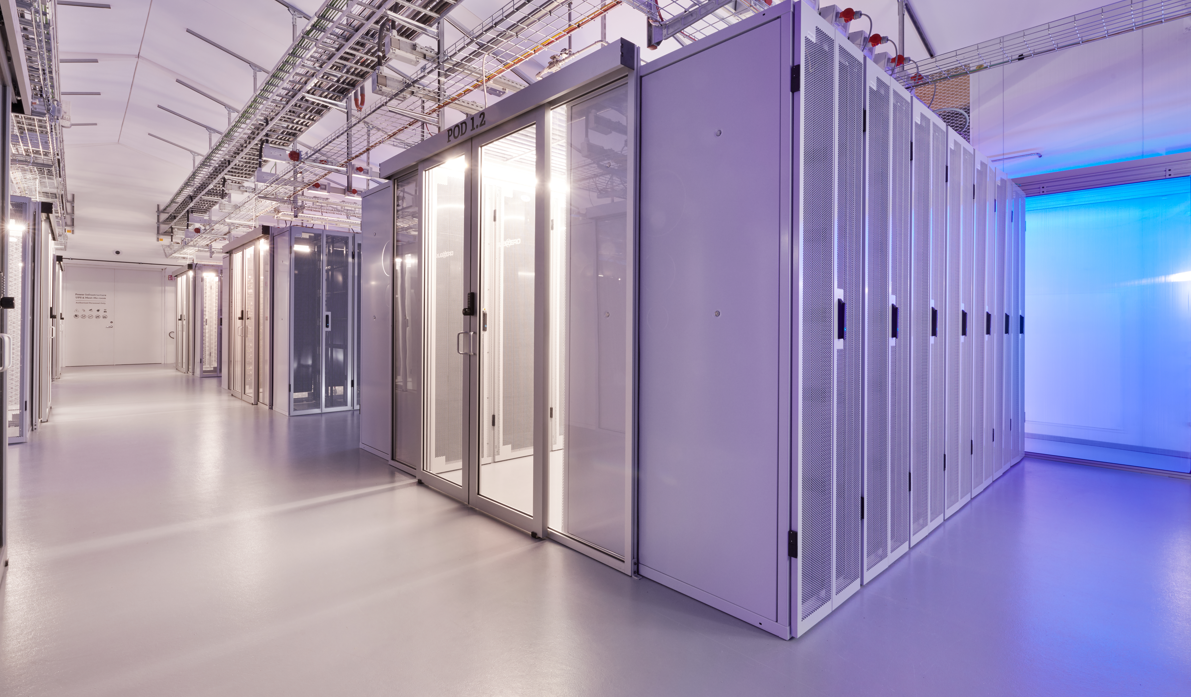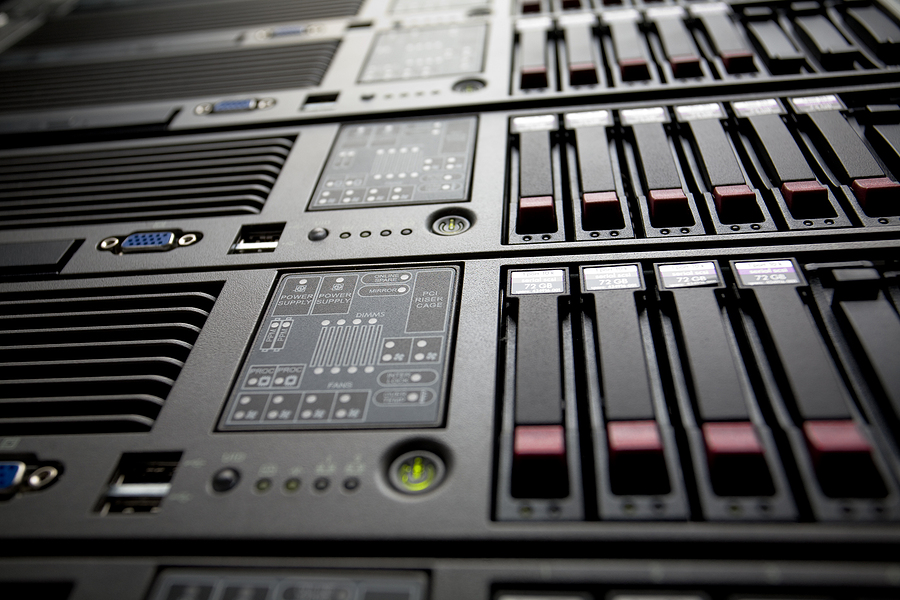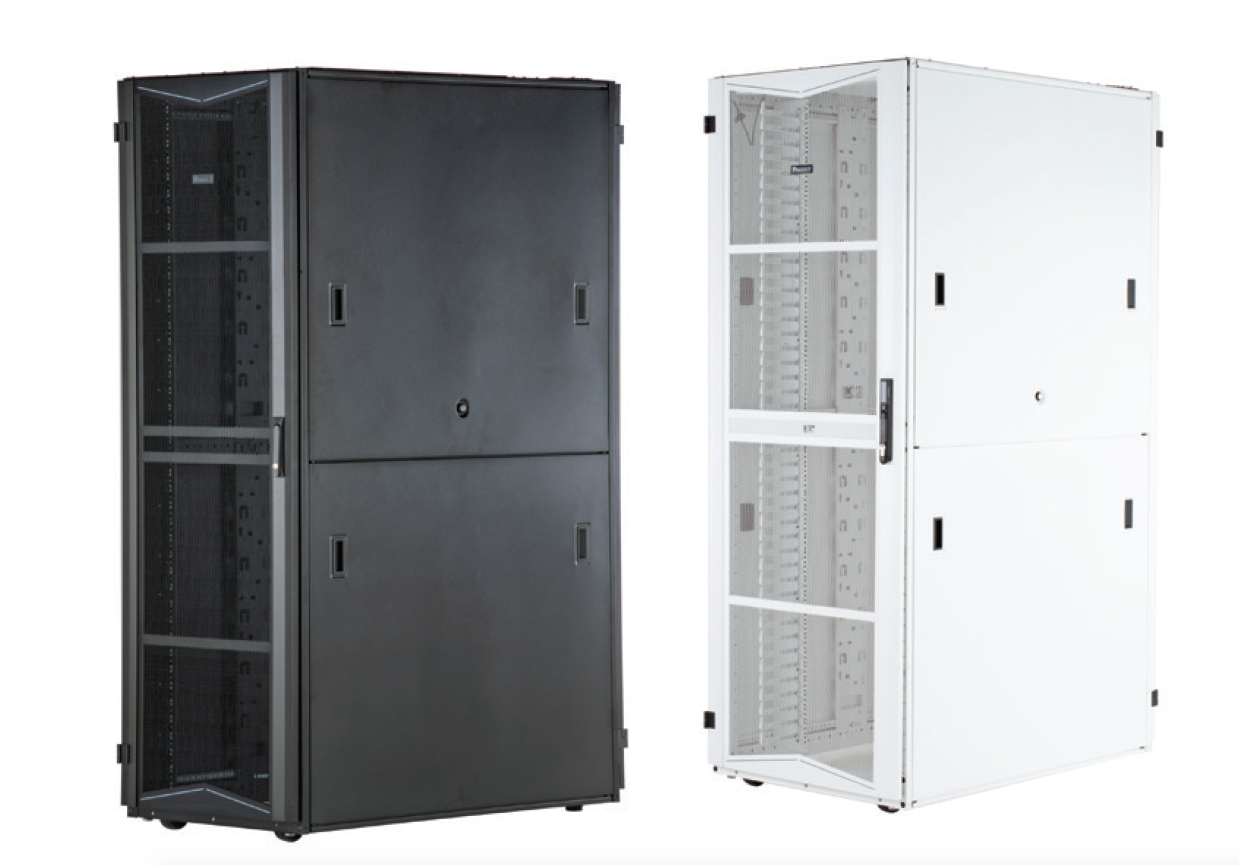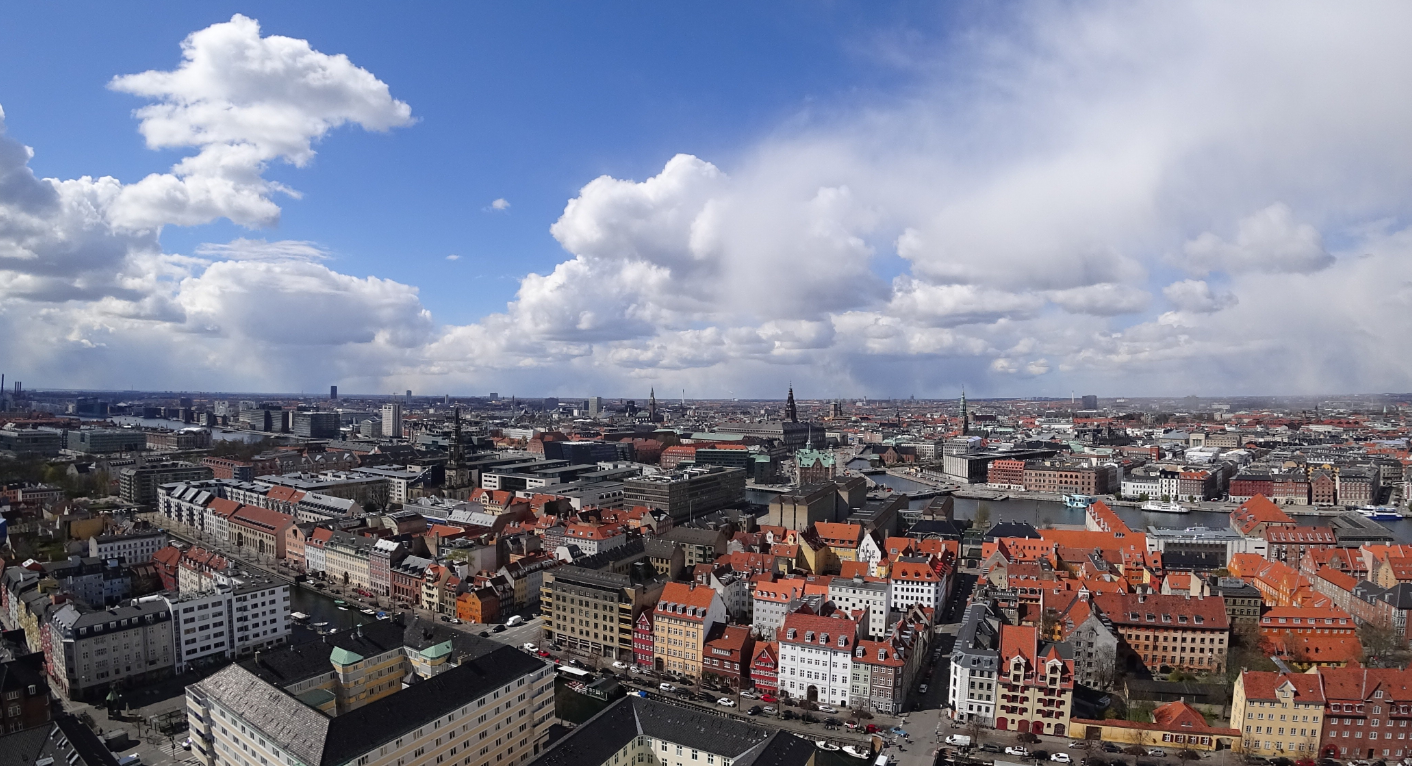Colocation
Colocation
Data Centres
Ficolo to support advanced, high performance computing installation
Ficolo has announced it will provide colocation services for a high density supercomputing infrastructure platform at Ficolo’s The Air Data Centre in Helsinki for one of the largest technology companies in the US. This brings an exceptional level of security to, and supports the platform, which enables users to secure and scale unique cutting-edge services for innovation.
“After evaluation of the major providers in the region, we were selected for this undertaking due to The Air’s ingenuity and climate friendly design,” says Ficolo CEO Seppo Ihalainen. “That, combined with the cool climate and well-connected Nordic location, positioned Ficolo as the ideal candidate to provide colocation services for this platform. Additionally, our team is always prepared to move quickly and meet the specific needs of each customer, which allows us to accommodate the unique requirements this project requires.”
Ficolo The Air utilizes the latest technological innovations in
cooling, active fire protection, heat reuse and flexible power distribution.
Combined energy and cooling cells (CECC) offer an energy efficient and low PUE
solution. The data center’s UPS system and generators guarantee an
uninterrupted power supply, and the cell-based design allows adaptive
scalability as CECC units can be fitted as the capacity grows. This allows
providing a mix of services for different types of customers from the same
whitespace.
A leader in sustainability, Ficolo is the first and only data
center company to be Dark Green rated — the highest rating awarded by Norwegian
climate research institute, Cicero. The dark green rating is allocated to
projects that correspond to the long-term vision of a low carbon and climate
resilient future and was awarded to Ficolo in conjunction with raising a Green
Bond in 2019.
“Traditional data centers don’t provide the level of flexibility to fulfill today’s requirements for sustainability, speed, versatility and cost-efficiency, but we’re continuously looking for ways to improve,” says Ficolo CEO Seppo Ihalainen. “We also have the advantage of the cool Finnish climate, which helps us provide the most cost-effective, innovative and sustainable service. We look forward to delivering that promise in this venture and in the future to hyperscalers around the world.”
Ficolo concentrates entirely on data center and cloud
infrastructure services, allowing customers to focus on core initiatives and
expand infrastructure to fit growth requirements. Ficolo’s data centers offer
ISO 27001, ISO 22301 and PCI DSS certified services for HPC, wholesale and
hyperscale operations.
Beatrice - 17 January 2022
Colocation
Data Centres
Sustainable IT: Building a sustainable enterprise with colocation
Carolina Uribe, Energy and Environmental Manager at Telehouse explains why more and more organisations are opting for colocation to improve their sustainability
When stakeholders start asking questions about
environmental, social and governance issues, corporate directors need to have
the right answers. And for this reason, sustainability has become a top
business issue.
Consumers, businesses, employees and investors are increasingly choosing only to work and do business with companies that support the transition to the low-carbon economy and address climate change, putting pressure on organisations to improve their carbon credentials and disclosures. According to Telehouse research, reducing environmental footprint is now a top five challenge for IT decision makers and will be the second biggest challenge by 2030.
As businesses embark on digital transformation journeys
and worldwide data traffic continues to grow exponentially, so too will demand
for power. Businesses will come under increasing scrutiny and be subject to
ever stricter regulatory requirements to measure and report on CO2 emissions and
plans to decarbonise. Meanwhile, the data centre industry is making great
strides to implement and promote more sustainable practices. optimising space and
implementing energy efficiency solutions. As a result, more and more enterprises
are turning to colocation services as the answer to improving their carbon footprint.
How the data centre industry is responding
With external and internal pressures to
improve their green credentials, the data centre industry is working hard to
reduce its environmental impact. Traditionally,
it has been subject to criticism about the amount of power it consumes, and the
type of electricity sources used to power its operations. However, many providers are now developing
their own internal environmental and energy efficiency strategies and policies
to drive improvements.
Many data centres also demonstrate best practice in
energy efficiency by adopting appropriate international ISO standards in
Environment and Energy management (ISO 14001:2015 & ISO 50001:2018). They
are also measuring and reporting energy use and efficiency through the CDP
(Carbon Disclosure Project) or equivalents, contractually through the Climate
Change Agreements. Some are doing this by obligation through regulatory schemes
such as EU ETS (EU Emissions Trading Scheme which captures Scope 1 emissions),
ESOS (Energy Saving Opportunities Scheme) and SECR (Streamlined Energy and
Carbon Reporting).
The most sustainable data centres are now being built on
commitments to innovative renewable strategies, including green power, water
reclamation, zero water cooling systems, recycling and waste management, and
more. They remove inactive or underused servers, and take advantage of newer,
more efficient technologies. As a result, organisations are optimistic
about the EU Commission’s vision of data centres becoming climate neutral by 2030
but recognise that there many challenges ahead to achieve this goal.
Choosing a green data centre provider
According to our research, the majority of IT decision-makers (86%) say sustainability is important in their IT infrastructure decision-making process and 62% are already monitoring the environmental footprint of their IT operations.
Furthermore, 82% say it is vital that their organisation
uses data centres powered by renewable energy again. However, when it comes to
choosing a data centre supplier, security (50%) and cost (41%) take priority,
with sustainability (26%) on the backburner. This is likely because renewable
energy is now a given and IT leaders are looking towards data centres to do
more to demonstrate energy efficiency measures.
While great strides are being made in the industry to
reduce energy consumption and improve sustainability, not all data centres are
equal. So, when choosing a new data centre partner, IT leaders consider what
climate actions their potential partners are taking as part of initial
assessments.
As well as the data centre providers’ commitments to
improving carbon efficiency, an often-overlooked area of sustainability is
cloud connectivity. With many enterprises shifting to a hybrid and multi-cloud
approach, choosing a data centre that offers that ability to connect to multiple cloud services
easily and securely through a single, dedicated private connection is critical.
Innovations in power or artificial intelligence can also
help drive improvements. Most data centre control systems already use AI to an extent to
control and improve energy efficiency effectively. For example, an
uninterruptable power supply can automatically change from one efficiency mode
to another depending on the load of the system, however, machine learning can
also be used to predict these events dependant on a number of other factors
(e.g. external ambient temperatures) so the control systems can react
accordingly and automatically.
Achieving a greener future
To meet growing corporate and social responsibility demands
organisations increasingly need to make procurement decisions based on
environmental sustainability. For years the IT industry and sustainability have
been at odds. However, through technological advancements such as AI, the
future is being changed and shaped for the better.
At the same time, those designing, building, and
operating data centres will continue to incorporate technical considerations
across a range of on-site power generation and energy storage solutions to practically
address greenhouse emissions abatement, evolving regulatory requirements and
end-user performance requirements, while also taking full advantage of
renewable energy sources and sustainable technologies.
During the last decade a lot of data has been collected
and analysed, providing more clarity on how a load grows within a building.
This has allowed operators to build infrastructure that is designed and then
tailored to those growth patterns. And with better cooling systems and UPS
technology, heat and server recycling projects, any new data centre can be
efficient from day one despite being built for a 30-year lifespan.
Over the coming years, we will see more joint
commitments and climate change projects emerging as businesses try to address
government commitments to Net Zero. The journey is only beginning, and it will
be colocation providers who have the opportunity to put sustainability agenda
at the forefront of their operations and strategies.
- - 10 January 2022
Colocation
Data Centres
A consultative approach to high performance colocation services
atNorth is a leading Nordic data centre services organization based in Reykjavik, Iceland. It offers environmentally responsible, power-efficient, and cost-optimized data centre hosting facilities, with the capabilities to deliver high-performance computing (HPC) services.
By working with Subzero Engineering the company was able to standardize its approach to HPC colocation; using a scalable, energy efficient, and ultra-secure, fault-tolerant cold aisle containment (CAC) methodology to replicate its sustainability and performance capabilities across multiple sites.
CUSTOMER
BACKGROUND
atNorth is a leading Nordic data centre services company offering environmentally sustainable, power-efficient, and cost-optimized data centre hosting facilities. Its Tier III, redundant design and its innovative ability to support rack densities ranging from 40kW – 100kW make it the perfect partner for organizations using high-performance computing (HPC) to solve some of the world’s most challenging problems.
With operations in Stockholm, Sweden and Reykjavik, Iceland, the company’s mission is to offer more compute for a better world, leveraging innovative data centre designs, power efficiency, and intelligent clusters to support the disruptive technologies used by customers. This includes workloads that require High Performance Computing (HPC) infrastructure, such as simulations, scientific calculations, artificial intelligence (AI), deep learning, and blockchain applications.
At its Icelandic Thor DC and Mjölnir DC colocation campuses, the company continues to push the boundaries of Nordic data centres; using 100% renewable energy resources from hydropower and geothermal sources to power their facilities, which are optimized for ultra-energy efficiency, maximum reliability, and industry-leading performance.
With this approach that incorporates Direct Free Air cooling and carbon-free energy, atNorth delivers a Power Usage Effectiveness (PUE) rating below 1.2 at its Tier III Mjölnir DC. A strategy that offers customers a reduced total cost of ownership (TCO), increased operational and energy efficiency, and a secure, scalable data centre platform to protect the long-term lifecycle requirements of their infrastructure deployments.
CHALLENGES
When designing its second 80MW, Mjölnir DC data centre campus in Reykjanesbaer, Iceland, atNorth was looking for a containment partner that was able to deliver to demanding timescales.
The company required a high-quality,
robust, and secure containment solution that would offer the ability to
standardize their design, while delivering repeatable performance,
sustainability, and efficiency capabilities across multiple sites.
Further, due to its reputation
for sustainable HPC and colocation, and for building long-term customer
relationships, the company was looking to establish a new supply chain partner
who could work with them as the company grew.
PROPOSED
SOLUTION
Working to meet the company’s requirements for speed, efficiency, and precision, Subzero Engineering quickly engaged with Jóhann Þór Jónsson, atNorth’s Director Project Management and Business Development. Rather than offer a simple proposal containing a product specification and cost, the companies’ engineers provided consultative expertise from a remote location in the USA, offering valuable insight that would help to future-proof the data centre and meet growing customer demand.
Once a relationship was established, Subzero specified its Essential Plus+ product line, offering a vendor-neutral, quick-to-deploy, and flexible containment system. Available globally, the Essential Plus+ products would provide atNorth with a standardized containment architecture, which would accommodate any customers’ HPC rack, server, or storage requirement.
“Subzero’s response time was exceptional,” says Jóhann Þór Jónsson, Director Project Management and Business Development, atNorth. “They not only specified a cold aisle containment architecture complete with security doors and top roofs, but worked with us consultatively to engineer a robust, clean, and energy efficient system that would look visually impactful and fit with the site’s geothermal surroundings.”
RESULTS
The sleek look and feel, best-in-class materials, and energy efficient architecture of the Essential Plus+ products met atNorth’s requirements for a customizable, robust and high-quality containment solution. Moreover, it would enable them to standardize and quickly scale across new sites, using a methodology that delivers increased security, performance, and sustainability. This is a pivotal approach, and has informed the design, construction and development of its third climate-positive data centre in Stockholm.
“Subzero Engineering has given us a standardized, repeatable, and physically secure containment system, which fits well with our own philosophy,” comments Jóhann Þór Jónsson, Director Project Management and Business Development, atNorth. “They have offered us a flexible containment solution, focused on both performance and efficiency, but which is easy to customize with the changing requirements of our intensive computing customers.”
Further, the synergies between the companies were clear from the outset, both having values ingrained with pushing the boundaries of performance, sustainability, and energy efficiency. Subzero’s containment solutions would not only contribute towards atNorth’s industry-leading low PUE, but their approach would deliver exceptional value: establishing them as a long-term partner for the company’s high performance, sustainable, colocation services. “As a business, we’re always focused on the long-term objectives of our customers, and we choose to work with companies whose values are aligned with ours,” continues Jóhann Þór Jónsson, Director Project Management and Business Development, atNorth. “Subzero Engineering remained service-minded, agile, and worked to truly understand our business: providing a consultative, value-add and intricate data centre solution that meets our demands for performance and efficiency both now, and in the future.”
Beatrice - 12 November 2021
Colocation
Data Centres
Infrastructure Management
DAMAC and Dataplex partner to develop data centre facilities in Europe
DAMAC Group has entered a partnership with Dataplex Group. The partnership will focus on brownfield projects involving retrofitting existing structures and larger greenfield projects, with specific focus on hyperscale and wholesale colocation customers.
DAMAC Group has also invested in Dataplex, which will result in a
shareholding of up to 45% of the company over time. Dataplex’s primary
shareholders DAMAC Group and Chirisa have acquired a land parcel in Abbotstown
for a greenfield 70 MW+ data centre and industrial campus development in
Dublin, Ireland.
The DAMAC Group of companies is the private investment arm of Hussain Sajwani, the Dubai-based billionaire known for his successful global property development company, DAMAC Properties. The group has a diverse portfolio across various sectors including real estate, capital markets, fashion, and more. Earlier this year, DAMAC Group made its foray into the data centre industry by launching Edgnex, a global digital infrastructure company headquartered in Dubai.
“DAMAC Group, through its global digital infrastructure company Edgnex, is developing data centre facilities to support the growth of digital economies across the globe. Our work with Dataplex enables us to serve exponential demand coming from local markets, driven by rapid digital transformation, booming digital economies, and growing internet users,” says Hussain Sajwani.
Edgnex, a global digital infrastructure provider, identifies and
invests in the next digital hubs and aims to disrupt the local data centre
market. Over the coming months, Edgnex will be announcing acquisitions,
building projects and partnerships focused on developing local data centre
facilities in emerging or underserved markets globally. Its mission is to bring
new speed and agility to the data centre market so that more local and regional
economies, enterprises and end users can benefit from
digital infrastructure.
“We have a track record of recognising opportunities, making significant investments and capturing a first mover advantage. We are driven by market dynamics, not just by who needs capacity now. Where we go, others follow,” Sajwani adds.
DAMAC Group’s footprint extends across the Middle East with projects in the UAE, Saudi Arabia, Qatar, Jordan, Lebanon and Iraq. Its success has allowed the company to expand global presence to places such as Canada, the Maldives, Italy and the UK.
“DAMAC Group has a unique vision for the data centre market, and we look forward to helping it to bring its disruptive model to more cities around the world. Together with DAMAC Group, we can deliver digital infrastructure in underserved markets and support the growth of local digital economies,” comments Eddie Kilbane, co-founder and CEO of Dataplex Group. “Our partnership will enable our organisations to grow together, and it will be great to work with the team at DAMAC Group.”
Beatrice - 20 October 2021
Colocation
Data Centres
The Norwegian data centre market is set to grow by 100MW by 2024
The Norwegian leased data centre market is set to grow by nearly 100MW by 2024, according to a new report released by CBRE Data Centre Solutions Consulting. That would take total market supply to 216MW for both retail and wholesale colocation.
The
surge in new supply is due to a number of factors that are unique to Norway’s
data centre offering. The market continues to be driven by enterprise and cloud
deployments with companies benefitting from access to renewable and low-cost
energy supply.
Many
of the deployments include high-density use cases such as artificial
intelligence (AI) compute and high-performance computing (HPC) which require
large amounts of processing equipment and power. In a number of cases companies
are able to move these functions where they don’t involve sensitive data into
lower-cost locations and this is driving international interest in the market.
The
Norwegian leased data centre market saw 36MW of take-up in the last two years.
Companies taking data centre supply included Microsoft which has deployed an
availability zone to serve the Nordics. Many other hyperscalers are showing
continued interest in the market, however, are yet to fully deploy their own
offering.
The market is currently being driven by larger deals, with the wholesale colocation market accounting for 83% of take-up and CBRE predicts it will reach above 90% in 2024 to 100MW.
The
market has also seen healthy growth in leased data centre supply. The majority
of the activity is centred around Oslo, where low latency connectivity is best
served. Other HPC environments are located outside of the city where land is
widely available alongside good power provision.
CBRE EMEA Data Centre Solutions Consulting Analyst Henry Gray says the industry continues to see large scale deployments, particularly from European businesses that are able to decentralise parts of their operation.
“Historical latency issues are becoming less of a constraint and the continued investments from data centre operators is placing Norway in an extremely competitive position with neighbouring markets,” Gray comments.
“Power
is still the main attraction to the market where cost saving and environmental,
sustainability and governance (ESG) targets can be met with ease. Our figures
are just starting to tell the story of the real importance of green energy in
the data centre industry.”
Beatrice - 28 July 2021
Colocation
Data Centres
News
Product
Panduit launches even more new FlexFusion cabinets
Panduit has launched its new FlexFusion cabinets which can be custom configured to meet the specific needs of any ITE environment. The requirements of data centres are constantly evolving, it is therefore essential to have rack solutions capable of offering maximum scalability. With the growth of edge data centres and colocation sites, these arrays must not only be flexible in their design, but also be configured for specific environmental and equipment needs that push the limits for maximum cooling and cooling efficiency.
FlexFusion Flexibility and ScalabilityFlexFusion cabinets provide a single universal platform for all types of data centres and enterprise service needs, including Hyperscale, Edge and Multi-Tenant Data Centres. Built with the best-in-class weight load of 3,500 lbs (1.59 tons), and doors with a maximum airflow of 80%, FlexFusion can accommodate the most complex cabinet installations. Whether it's servers, networks, or hybrid applications, FlexFusion enclosures deliver performance that allows optimum operation in any network environment, with sizes from 600mm to 800mm widths, 1070mm and 1200mm depths and a range of heights from 42 to 51RU.
FlexFusion offers:A configuration tool to select a standard or pre-configured turnkey bay (including size, colour, number of luggage racks, types of locks and handles, position of the electric rail, type of roof, sensors, PDUs, side panels). • Fully integrated design without the use of grounding wires • 170-degree door opening for ease of access • Adjustable front and rear cage nut equipment rails • Multiple tool-less cable management options • Easy lift side panels with convenient lifting handles
"Interaction with our customers is essential to provide them with the high level of flexibility they demand for their data centre cabinets. The FlexFusion cabinet is our answer to their needs. Through in-depth research, our customers have told us that they need a configurable cabinet, which can scale with the demands of the network,“ says Matt Paciorek, Group Manager, Converged Infrastructure Solutions. “Data centre cabinets are increasing in density and storage capacity, which is why we have added additional thermal enhancements and built-in intelligence. We are very excited that the FlexFusion cabinet specifically meets the expectations of the customer.
The FlexFusion bay can be custom configured using the configurator tool available via the Panduit website.
Beatrice - 6 July 2021
Colocation
Data Centres
How colocation providers can deliver a value-added service and keep ahead of the pack
By David Fiore, Senior Software Product Manager, Opengear
According to a recent research study, published by Facts & Factors, the global data centre colocation market was estimated at US$ 39 billion in 2019 and is expected to reach US$ 60 billion by 2026. The market is expected to grow at a compound annual growth rate (CAGR) of around 10% from 2020 to 2027.
It is a positive picture but in the years to come, the success of colocation service providers will be key to this ongoing growth. Today, we are seeing these providers increasingly looking to differentiate themselves from the competition by finding new ways to add value to their service offering to potential tenants. Delivering competitively-priced units and rack space is no longer sufficient. Providers will be looking to add other feathers to their cap.
One of the main ways in which they can distinguish themselves is through their ability to monitor and manage the systems they look after for their tenants more efficiently and effectively. In doing this, colocation providers will above all be looking for a single pane of control to enable them to remote access and provision, troubleshoot and re-configure.
Underneath this, they will need to work with a fully functional network management capability. A potentially key part of this will be providing customers with tools for out-of-band management (OOB), which give them direct access into their network and the ability to manage devices like switches, routers or firewalls, without needing to purchase and maintain the equipment.
Delivering an always-on independent management plane, OOB gives users reliable access to monitor and manage their IT infrastructure. That capability can be combined with NetOps automation tools, in turn allowing engineers to automate and orchestrate key functionality and maintain business continuity. This way of operating is ideal for organisations renting space within a colocation facility. It also benefits the facility providers themselves who can utilise it to offer a ‘remote hands’ service to tenants, applying relevant access controls and permissions and then segmenting out capability to them from an out-of-band device.
Just being able as an administrator to get onto a laptop and access the services that sit inside the colocation facility, without needing to do complex networking, will also be a key benefit for colocation providers, and will help them provide reassurance for tenants. Further opportunities will be laid open by the emerging capability to segment customer traffic, data and permission levels across these tools.
Yet, it is worth remembering that all this depends on having implemented a centralised and streamlined network monitoring and management infrastructure. Colocation service providers won’t want to have to bring up one portal to access their servers, one to manage their network equipment and yet another to access security authentication. They will want to have a single place where they can manage all this capability.
At the same time, they may well want to be able to readily see all of their power or data consumption in a centrally-accessible location rather than spending time and effort digging into processes to understand key trends or to attain key metrics. All this benefits the service provider in making their operations more efficient and that by extension will bring complementary benefits to tenants. Yet, all this capability will not necessarily be easy to achieve.
Any provider will be faced with complex decisions about the solutions they should buy. There are a diverse range of different networking products available today, each with their own configurations. When you pick a single provider there may be concessions to make in terms of areas that provider does not cover or where their solutions are more expensive than a best-of-breed solution elsewhere.
That’s a challenge for a colocation service provider. They will either have to pick a networking platform that doesn’t do everything and stick with it in the hope that it will do most of what they require or alternatively they will have to use multiple platforms: something which brings its own challenges, not least in terms of having multiple different management consoles and multiple different ways to facilitate changes.
If the latter is the case, they will benefit significantly from having an overarching solution that offers the capability to manage all these networking devices from a single pane of control, and which can link to networking devices and provide all the data they need in one place rather than having multiple endpoints to go and get data and make changes. They no longer have to remember, for instance, where do I go to control my firewall, or to put updated policies into my intruder prevention system? Delivering these kinds of capabilities will assist colocation service providers in their bid to stand out from the crowd but will also benefit the whole sector.
Looking to the future
Today, the colocation market is demonstrating robust growth. In some parts of the world, larger providers are taking over and buying up smaller providers because they are confident they can build systems that allow them to deliver services across the board. In other regions, smaller colocation facilities have come to life to fill the void that the big ones don’t cover.
Both large and small service providers have the potential to survive in the colocation market of the future. Yet, both will nevertheless be reliant on the quality of networking systems and solutions they can access and their ability to make use of a centralised management system to drive operational efficiencies; faster time to insight and competitive edge.
Carly Weller - 26 May 2021
Colocation
Data Centres
Echelon Data Centres and Biocore Environmental agree to co-locate
Echelon Data Centres and Biocore Environmental have reached an agreement to co-locate a biogas production facility on the Echelon DUB20 data centre site in Arklow, Co Wicklow, Ireland.
Biocore specialises in producing methane gas through the anaerobic digestion process, gas which can be used to power combined heat and power (CHP) generators producing electricity, or which can be processed further and supplied directly to the national gas network. Echelon, which has six sites in Ireland and the UK with up to 500MW of capacity, is committed to sustainable operations, one element of which is exploring ways in which its facilities can be powered cleanly and sustainably.
Niall Molloy, CEO of Echelon Data Centres, believes that as demand for data processing, management and storage facilities continues to increase, driven by society’s increasing reliance on tech and its application in everyday life, data centre operators must focus on, and facilitate, the provision of clean and sustainable power to their facilities.
“The inconvenient truth is that data centres are huge
consumers of power – but equally inconvenient is the fact that without them, we
would not be enjoying – relying on – the benefits of 5G, e-commerce, the
Internet of Things, artificial intelligence (machine learning) and virtual
reality. Given, therefore, that data centres are here to stay, it’s up to us –
the facilities’ owners and operators – to make provision to power them
sustainably, cleanly and with least impact on the grid.
“Our agreement with Biocore, which would see a renewable
biogas facility co-located with a 100MW data centre on our DUB20 site is a
landmark initiative which could assist in providing a renewable back-up power
solution for the facility, while also making productive use of organic material
and returning value in terms of fertiliser stock for Irish agriculture.”
“We recently signed an agreement with SSE Renewables to
co-locate a substation on our DUB20 (Arklow) site which will facilitate the
development of Ireland’s largest off-shore windfarm, supplying some 520MW of
renewable power through the substation to the national grid. The substation
will also supply power to our data centre.
“On our DUB10 (Clondalkin) site, we have planning permission
for a 100MVA gas-fired energy centre, which will help smooth the flow in the
grid (enabling the transition to 100% renewable energy), while providing
back-up power for the facility thereby doing away with the need for diesel
generators.“
Declan Murray, Managing Director of Biocore Environmental, welcomed the agreement with Echelon, highlighting the mostly untapped potential in biogas production, both as a completely sustainable and eco-friendly method of producing fuel and also as a way of solving problems associated with the recovery of biodegradable material.
“Biogas production is a virtuous circle – we take organic materials
that can, themselves, become environmental pollutants, and transform them into
gas either for supply to the gas network, or for use in generating power.
“The residue from the production process is dried and
re-supplied to the farms from which much of our organic feedstock can be
sourced. This residue makes an excellent fertiliser – and means that none of
the organic material goes to waste.
“Our relationship with Echelon will be a symbiotic one – we
can use the heat that is generated by the data centre to maintain our biogas
production process, and the biogas produced can assist the data centre in terms
of producing power for storage in back-up battery arrays.
“One of the by-products of the gas cleaning process – before
it is introduced to the gas network, for supply to homes and businesses – is
carbon dioxide. This is an effective fertiliser for plant products cultivated
under cover and, of course, the Echelon DUB20 site has the space to host such
enterprises in the future.”
Beatrice - 13 April 2021
Colocation
Data Centres
Dansk Telemedicin choose DigiPlex for Colocation services
DigiPlex, the Nordic leader for sustainable, scalable, and secure data centres, welcomes Dansk Telemedicin A/S to its Copenhagen data centre. As a leading and well-known supplier to the healthcare sector across Denmark, Dansk Telemedicin specializes in developing flexible, internet-based systems for collecting, structuring and sharing medical data.
Working with hospitals and care
providers, Dansk Telemedicin creates data services and workflows that meet the
specific needs of the sector. This includes handling confidential and sensitive
personal data. Security, resilience and availability are crucial to the
company’s service to its customers so it needed a data center partner that
could guarantee the same. DigiPlex’s reputation and track record in these areas
was key in the company’s decision to move to the DigiPlex facility in central
Copenhagen.
Moving to DigiPlex not only
provides Dansk Telemedicin with a flexible resource for its data center needs
but places it into an ecosystem providing connectivity to current and potential
partners, suppliers and customers.
“We believe that our systems should adapt to our customers, not the other way around,” says Thomas Berner, Head of Sales and Compliance at Dansk Telemedicin. “The flexibility and stability, as well as the understanding of our area of work, weighed heavily in the choice of colocation-provider.”
“Dansk Telemedicin is a recognized name in Danish healthcare IT and we are pleased to welcome them to DigiPlex,” says Fredrik Jansson, DigiPlex CCO. “Any organization dealing with healthcare data needs 100% confidence in the security and stability of the infrastructure they rely on. We are pleased to be able to deliver this confidence to Dansk Telemedicin.”
DigiPlex was established in Copenhagen in 2018 following the takeover of an existing data centre from Telia, which subsequently became one of DigiPlex’s key customers. The data centre is 1,600 square meters. See here for site specifications.
Just last month, DigiPlex announced it had expanded its Danish portfolio further through the acquisition of a plot of 110,000 m2, secured enough renewable power to support the development, as well as onsite water, planning and building permissions to construct five data centres for a major new campus site. This second DigiPlex datacentre site in Denmark will feature waste heat recovery technology to feed into the existing district heating system as part of a significant environmental sustainability commitment.
Beatrice - 29 March 2021
Colocation
Data Centres
Amito acquires Luminet colocation customer base
Amito Limited has acquired a significant colocation customer base from leading wireless microwave and fibre connectivity provider Luminet.
Based in Reading, Amito owns and operates an award winning Tier3+ data centre renowned for its innovative operations management, and industry leading support teams.
Ed Butler, CEO, Amito says, “We are delighted to have successfully completed this acquisition with Luminet. Despite the challenges of the last year we have maintained a strong growth in the market and this acquisition is a really positive step for our business development strategy. Luminet are also the latest carrier to have a point of presence (PoP) at our Reading datacentre which is great news for the customer.”
London based Luminet took the decision earlier this year to focus on their connectivity solutions. Sasha Williamson, CEO, Luminet explains, “We always want the absolute best service for our customers, so we took the time to find a best of breed partner to take on our colocation clients. We believe we have found in Amito a highly experienced team who can offer a deeper level of expertise in colocation solutions and share our vision for excellence. This is a great move for our customers and a great solution for both Luminet and Amito.”
Beatrice - 1 March 2021

Head office & Accounts:
Suite 14, 6-8 Revenge Road, Lordswood
Kent ME5 8UD
T: +44 (0)1634 673163
F: +44 (0)1634 673173

